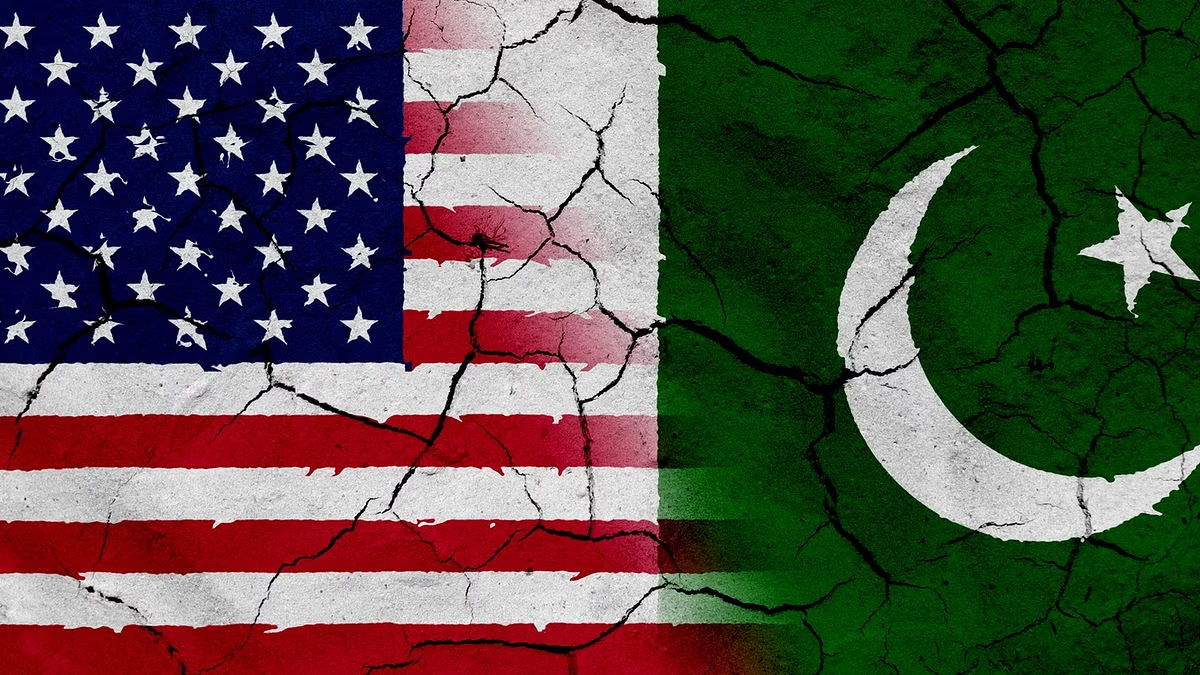The United States has once again intensified scrutiny on Pakistan’s strategic missile program, imposing sanctions on four Pakistani entities accused of supporting the country’s long-range missile development. Announced by the State Department, this move underlines the ongoing challenges in balancing global non-proliferation efforts and national sovereignty in the pursuit of strategic defense.
Understanding the Sanctions
The sanctions, implemented under Executive Order 13382, specifically target proliferators of weapons of mass destruction (WMDs) and their means of delivery. The entities listed include:
Pakistan’s National Development Complex (NDC): Allegedly responsible for the development of Pakistan’s ballistic missile program, including the Shaheen-series missiles.
Affiliates International: Accused of supplying missile-related equipment.
Akhtar and Sons Private Limited: Implicated in the provision of missile-applicable materials.
Rockside Enterprise: Alleged to have supplied critical support for long-range missile systems.
The US asserts that these entities engaged in activities contributing to the proliferation of WMDs, specifically by acquiring special vehicle chassis and testing equipment for ballistic missiles. The State Department maintains that this decision aligns with its broader strategy to curb the spread of WMDs and their delivery mechanisms.
Pakistan’s Missile Program: A Historical Context
Pakistan’s missile development is deeply rooted in the country’s strategic necessity to counterbalance regional threats. The Shaheen-series ballistic missiles, which form the core of Pakistan’s long-range missile program, are seen as pivotal to maintaining deterrence in South Asia. However, these capabilities have long been a point of contention in US-Pakistan relations.
The US has previously sanctioned entities in China and Belarus, accusing them of supplying materials and technology for Pakistan’s missile development. These actions have been met with skepticism in Islamabad, which perceives such measures as discriminatory and aimed at curbing its defense capabilities rather than genuinely addressing proliferation concerns.
Pakistan’s Response
Hours after the sanctions were announced, Pakistan’s Foreign Office issued a strongly-worded statement rejecting the US decision. Terming the sanctions “unfortunate and biased,” the statement emphasized that Pakistan’s missile program is a defensive measure aimed at safeguarding its sovereignty and ensuring regional stability.
The Foreign Office highlighted the following concerns:
Double Standards: Pakistan criticized the selective enforcement of non-proliferation norms, citing instances where the US waived restrictions for other nations.
Lack of Evidence: The statement argued that past sanctions on commercial entities were based on mere suspicion rather than concrete evidence.
Implications for Regional Stability: By targeting Pakistan’s missile program, the US risks exacerbating military imbalances in South Asia, potentially destabilizing the region.
Sacred Trust: Pakistan’s leadership considers its strategic program a national imperative, entrusted by the country’s 240 million citizens.
Impact on Pakistanis
The sanctions are likely to have far-reaching implications for the Pakistani populace. Key concerns include:
Economic Strain: The targeted sanctions on commercial entities could disrupt trade and supply chains, impacting industries linked to these organizations.
Technological Restrictions: Limitations on acquiring critical technology may hinder Pakistan’s defense and scientific advancements.
Public Sentiment: The sanctions may fuel anti-American sentiment, as Pakistanis perceive these measures as an attack on national sovereignty.
Strategic Pressure: The sanctions add to the existing geopolitical challenges Pakistan faces, increasing the pressure on its government to navigate a complex international landscape.
The Broader Implications of Sanctions
The US decision to impose sanctions on Pakistan’s missile-related entities raises several critical questions about the dynamics of international non-proliferation efforts and geopolitical strategy:
Credibility of Non-Proliferation Regimes: Critics argue that selective enforcement of non-proliferation norms undermines the credibility of global regimes. The perception of double standards—where certain countries face stringent restrictions while others receive exemptions—weakens the legitimacy of these frameworks.
Regional Security Dynamics: Pakistan’s missile program plays a crucial role in maintaining strategic stability in South Asia. The US sanctions, viewed by Islamabad as an attempt to create military asymmetries, could strain the already fragile balance of power in the region.
Impact on US-Pakistan Relations: These sanctions add another layer of complexity to an already fraught bilateral relationship. While the US frames these actions as necessary for global security, Pakistan perceives them as punitive measures that disregard its security concerns.
The Path Forward: Dialogue and Diplomacy
To mitigate the fallout from these sanctions, both nations must engage in constructive dialogue. A few potential steps include:
Addressing Perceptions of Bias: The US could adopt a more consistent approach to non-proliferation policies, ensuring that actions are guided by objective criteria rather than geopolitical considerations.
Strengthening Regional Stability: Encouraging confidence-building measures and transparency in South Asia could help reduce tensions and foster trust between key players.
Balancing Security and Sovereignty: Recognizing the legitimate security concerns of all nations, including Pakistan, is essential for creating a cooperative global security framework.
Conclusion
The US sanctions on Pakistan’s missile-related entities underscore the complex interplay between global security imperatives and national sovereignty. While the US views these measures as essential to curbing WMD proliferation, Pakistan sees them as an affront to its strategic autonomy and regional stability.
Navigating this delicate terrain requires nuanced diplomacy and mutual understanding. Only through equitable and consistent application of international norms can the global community foster a more secure and stable future. For now, the US-Pakistan relationship remains at a crossroads, shaped by competing narratives of security, sovereignty, and global accountability.




